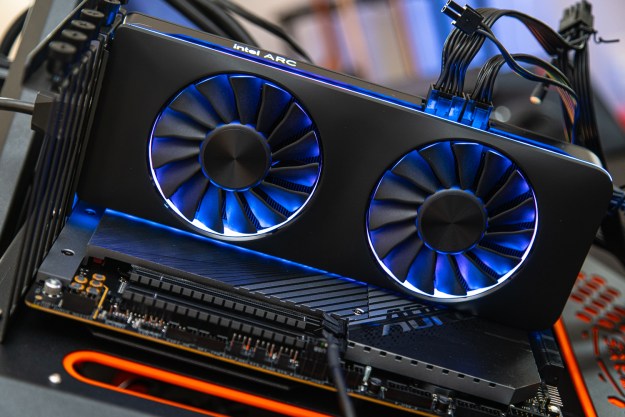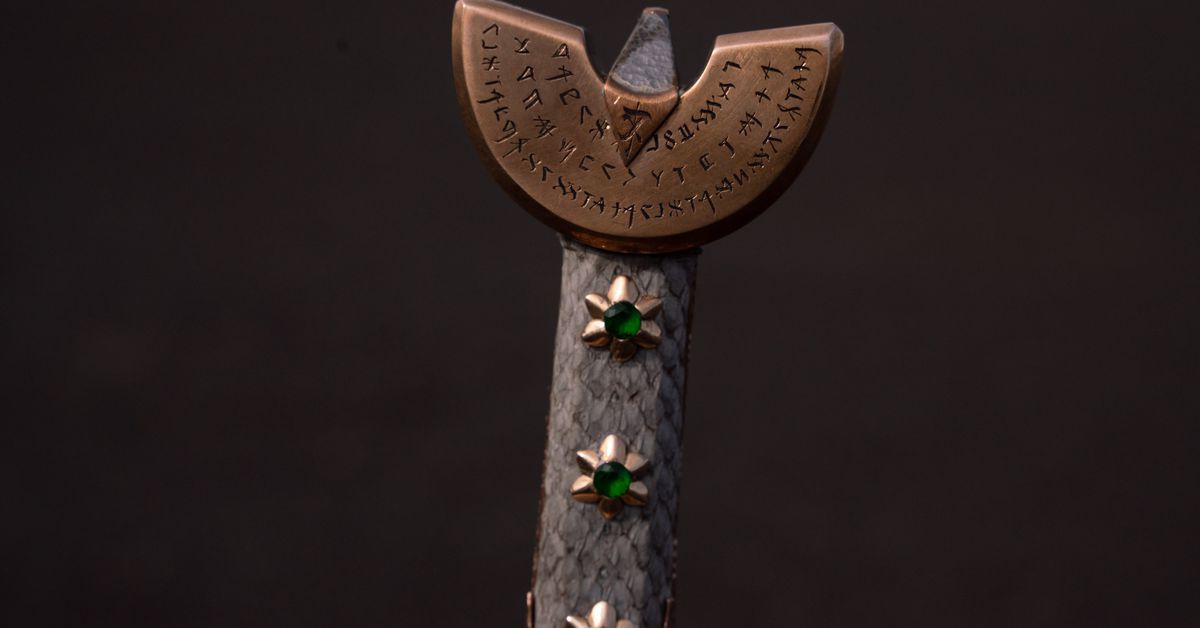I fell in love with this adorable mini gaming PC
Ayaneo revealed a range of new products inspired by retro designs, with the headliner being an adorable mini PC that looks like a Mac.

By
Jacob Roach
November 17, 2023 7:00AM 
 A new mini gaming PC designed to look like a classic Mac is launching soon, and it could be seriously impressive. Ayaneo revealed the AM01 mini PC on Friday, and it’s among the first mini PCs the company has ever released.
A new mini gaming PC designed to look like a classic Mac is launching soon, and it could be seriously impressive. Ayaneo revealed the AM01 mini PC on Friday, and it’s among the first mini PCs the company has ever released.
Ayaneo is mostly known for making handheld gaming PCs like the Ayaneo 2S, but it’s introducing two mini PCs as part of its new Remake concept. The series is meant to “interpret retro, reshape classic,” according to the company, which furnished its portable gaming devices with the powdery whites and grays of classic electronics.
AYANEO Retro Mini PC AM01 - Interpret Retro, Reshape Classic
The AM01 looks like it takes design inspiration specifically from a classic Mac like the Apple II. It’s off-white with a rainbow badge on top that sits alongside a gray power button. Ayaneo hasn’t shared many details yet, but it looks as if the mini PC includes five USB ports, with four on the back and one on the front, along with an HDMI port, DisplayPort connection, and Ethernet.
We don’t have any details about the specs for now, but the IndieGoGo page for the AM01 promises “top-notch gaming experiences” and “multiple processor version option.” The page also highlights that the mini PC will be available with Windows 11 or as a bare-bones PC, both of which offer user-expandable storage.
 Ayaneo
AyaneoAyaneo is no stranger to powerful APUs like the Ryzen 7 7840U, so it’s possible we’ll see an APU in the AM01. It’s possible that Ayaneo could pack a discrete GPU into the mini PC, though an APU seems more likely given the size. Ayaneo says the AM01 is “so portable [it] can be carried in your bag.”
 Ayaneo
AyaneoThe PC will launch in mid- to late November at an Ayaneo event, but it seems this is when the campaign on IndieGoGo will launch, not when the final product will ship.
Ayaneo announced several other products at its showcase, including the AM02, which is a mini PC like the AM01 that sports a design reminiscent of the classic NES. In addition, the company introduced the Ayaneo Slide, which is a 7840U handheld with a screen you can slide forward to reveal a keyboard, and the Ayaneo Flip, a clamshell handheld that reveals either a keyboard or a second screen depending on your model. The Slide will launch at the end of November, while the Flip is expected in the next two months.
Editors' Recommendations
Whatever you do, don’t buy an Nvidia GPU right now Call of Duty Modern Warfare 3: best settings, benchmarks, and more 5 things you should never do with your gaming laptop I tested Intel’s new overclocking tool, and it does AI all wrong Your PC problem could probably be fixed with a BIOS updateJacob Roach is a writer covering computing and gaming at Digital Trends. After realizing Crysis wouldn't run on a laptop, he…
Intel’s next-gen GPUs are its first real shot at being the best
When Intel's first-gen GPUs launched, their performance had some serious weaknesses. Intel acknowledged this before the launch of the GPUs, promising that it would improve performance through driver updates in the future. It's Intel's take on AMD's classic "fine wine" approach to GPU drivers that we've seen in the past.
And that's exactly what it did. It seems like every week Intel has been making headlines with massive performance improvements in individual games. But the big payoff from these drivers isn't just for the Arc A770 and A750. These big driver boosts are laying a foundation for Intel's next-gen Battlemage GPUs, and they could make all the difference.
Starting from the bottom
Don’t believe the hype — the era of native resolution gaming isn’t over
Native resolution is dead, or so the story goes. A string of PC games released this year, with the most recent being Alan Wake 2, have come under fire for basically requiring some form of upscaling to achieve decent performance. Understandably, there's been some backlash from PC gamers, who feel as if the idea of running a game at native resolution is quickly becoming a bygone era.
There's some truth to that, but the idea that games will rely on half-baked upscalers to achieve reasonable performance instead of "optimization" is misguided at best -- and downright inaccurate at worst. Tools like Nvidia's Deep Learning Super Sampling (DLSS) and AMD's FidelityFX Super Resolution (FSR) will continue to be a cornerstone of PC gaming, but here's why they can't replace native resolution entirely.
The outcry
Let's start with why PC gamers have the impression that native resolution is dead. The most recent outcry came over Alan Wake 2 when the system requirements revealed that the game was built around having either DLSS or FSR turned on. That's not a new scenario, either. The developers of Remnant 2 confirmed the game was designed around upscaling, and you'd be hard-pressed to find a AAA release in the last few years that didn't pack in upscaling tech.
The ‘AI PC’ is coming for you, whether you like it or not
There isn't a tech company in the world that isn't trying to fashion itself as an AI innovator right now. But as an established PC brand, Lenovo has an edge in that it can easily bake AI into its products and services.
Is there more to it than that, though? The brand's PCs have already benefitted from several AI features. Lenovo showcased this at its Tech World 2023 conference, with futuristic concepts like the personal AI twin, which will intuitively leverage on-device information in an AI-assistant fashion, and allow you to protect personal data from the web at large. Such projects are another step toward the "AI PC," as it's being called.

 Lynk
Lynk 





































